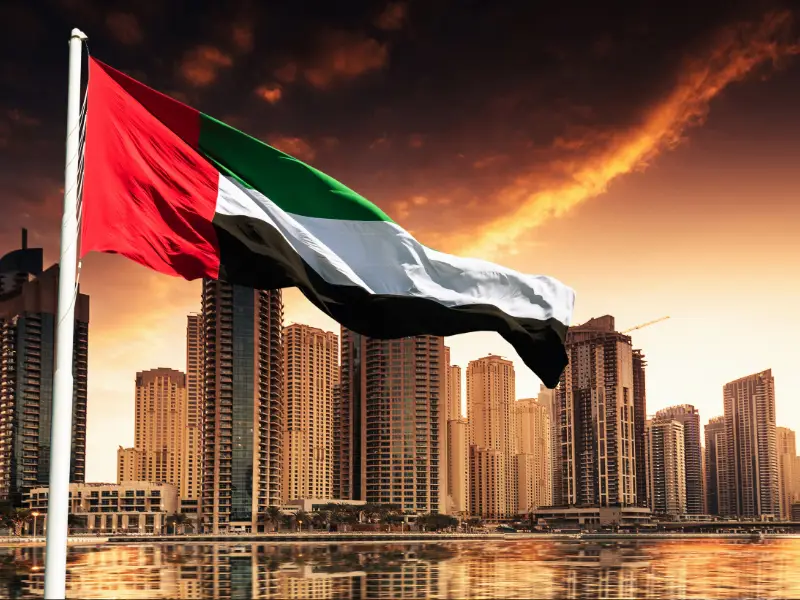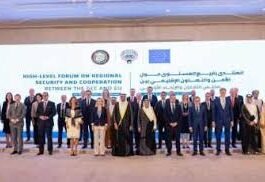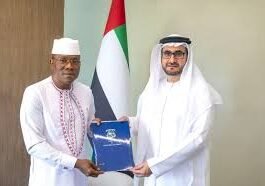Introduction to the Aid Foresight Programme
The Aid Foresight Programme is an innovative initiative launched by the United Arab Emirates, aimed at enhancing humanitarian leadership through targeted capacity building. This program is designed to equip current and aspiring leaders within the humanitarian sector with essential skills and knowledge to navigate the complexities of foreign aid dynamics. As the landscape of humanitarian aid continues to evolve, the initiative specifically targets the need for leaders to remain adept and responsive to emerging challenges in international aid delivery.
Over the course of several masterclasses, participants will engage in a carefully curated curriculum focused on aligning their knowledge with the latest trends and practices in the humanitarian field. Each masterclass provides in-depth insights into various aspects of humanitarian response, including effective coordination, ethical considerations, and innovative approaches to aid implementation. The programme underscores the importance of forward-thinking strategies that empower leaders to make informed decisions in rapidly changing environments.
The significance of the Aid Foresight Programme is magnified by the UAE’s prominent role in the global aid arena. As one of the leading countries in humanitarian assistance, the UAE has a longstanding commitment to alleviating human suffering and providing support to those in need, irrespective of geographic or cultural boundaries. This initiative reflects the UAE’s overarching mission to foster a culture of humanitarianism and international cooperation, reinforcing its dedication to elevating the standards of aid delivery on a global scale. By investing in the capabilities of humanitarian leaders, the Aid Foresight Programme aims to not only enhance individual expertise but also contribute to the overall efficacy of humanitarian efforts initiated by the UAE and its partners worldwide.
Structure and Pillars of the Program
The UAE’s ‘Aid Foresight Programme’ is meticulously designed around four foundational pillars that are critical to fostering effective humanitarian leadership. These pillars—education, capacity building, experience sharing, and strategic networking—work collaboratively to enhance the competence of participants in addressing global humanitarian challenges.
The first pillar, education, focuses on equipping participants with essential knowledge and skills. This component comprises workshops, seminars, and online courses that delve into various aspects of humanitarian action. Through these educational initiatives, participants gain insight into best practices, current trends, and innovative solutions that are pivotal in today’s rapidly changing humanitarian landscape. By emphasizing an array of educational resources, the program aims to cultivate a well-informed cohort capable of implementing impactful humanitarian interventions.
The second pillar, capacity building, is aimed at strengthening the operational capabilities of participants. This encompasses providing practical training and resources that enhance the skills necessary for effective program implementation and management. By focusing on practical skills development, the program ensures that participants are not only knowledgeable but also adept at executing strategies in real-world scenarios.
Experience sharing is the third pillar, which encourages dialogue and collaboration among individuals from various sectors of humanitarian work. This fosters an environment where lessons learned and experiences can be exchanged, thus enriching the collective wisdom of the participants. By learning from one another, participants can adopt successful strategies and avoid potential pitfalls in their future endeavors in the humanitarian field.
Finally, the pillar of strategic networking facilitates the creation of meaningful connections among leaders, organizations, and sectors involved in humanitarian initiatives. This networking aspect is crucial as it can lead to collaborative projects and partnerships, ultimately enhancing overall impact. Together, these four pillars form a comprehensive framework that significantly elevates the effectiveness of leaders within the humanitarian landscape.
Expert Contributors and Their Backgrounds
The UAE’s ‘Aid Foresight Programme’ benefits immensely from the insights provided by a notable group of expert speakers. Each contributor boasts extensive backgrounds in global governance and humanitarian aid, leading to impactful strategies and innovative policies. Highlighting their expertise provides participants with a unique opportunity to learn from leaders in the field.
Beatriz Nofal is a distinguished figure in humanitarian aid circles, possessing over two decades of experience in international development. She has worked with various esteemed organizations, including the United Nations and several non-governmental organizations (NGOs). Nofal’s expertise lies in strategic planning and implementation of aid programs, particularly in crisis situations. Her work has significantly influenced women’s empowerment initiatives and sustainable development goals, underscoring her commitment to enhancing aid effectiveness.
Bart Fonteyne brings a wealth of knowledge from the humanitarian sector, having served in diverse capacities across multiple global platforms. His career spans years of involvement in development and relief efforts, with a focus on coordination and optimizing resource allocation in aid initiatives. Fonteyne’s experience with various international organizations enriches the ‘Aid Foresight Programme’ by offering participants insights into complex operational frameworks, enabling them to grasp the intricacies of humanitarian leadership.
Lastly, Hosuk Lee-Makiyama, a renowned expert in international trade and development policies, complements the program with his robust analytical skills and knowledge. Lee-Makiyama’s background includes advisory roles to government agencies and contributions to high-level discussions on global economic challenges faced by multiple nations. His expertise is pivotal in bridging the gap between humanitarian action and economic recovery, thus reinforcing the importance of strategic alignment within the programme.
The combined experiences and perspectives of Nofal, Fonteyne, and Lee-Makiyama empower participants of the ‘Aid Foresight Programme’ to cultivate advanced leadership capabilities, essential for navigating the complexities of today’s humanitarian landscape.
Strategic Impact and Future Outlook
The UAE’s ‘Aid Foresight Programme’ reflects a transformative approach to humanitarian leadership, strategically positioning the country as a key player in global foreign aid initiatives. This innovative programme is designed to empower participants with the skills and knowledge required to address humanitarian crises effectively. By focusing on innovative solutions, the UAE aims to address the shortcomings often present in traditional foreign aid frameworks. The emphasis on strategic foresight allows humanitarian leaders to anticipate future challenges and deploy resources efficiently, thereby enhancing the overall impact of humanitarian efforts.
Looking ahead, the UAE’s commitment to collaboration with various organizations and institutions underscores its aspiration to elevate humanitarianism on a global scale. Partnerships with academic institutions, NGOs, and governmental agencies are integral to the programme, creating a robust network that fosters the exchange of ideas and practices. This collaborative model not only enhances the learning experience for participants but also encourages a more comprehensive response to emergencies and crises. Participants are trained to engage thoughtfully with regions that experience persistent challenges, thus bridging gaps left by conventional aid donors.
The future outlook of the Aid Foresight Programme suggests that the UAE will continue to refine its approach to humanitarian efforts, adapting to emerging global trends and needs. As the geopolitical landscape evolves, the programme positions its participants to become thought leaders capable of guiding innovative responses to humanitarian challenges. This proactive stance not only addresses immediate needs but also cultivates long-term resilience in affected regions. Ultimately, the strategic implications of the programme are clear: the UAE aims to redefine humanitarian leadership, prioritizing innovation and collaboration as essential components for effective foreign aid and support.




